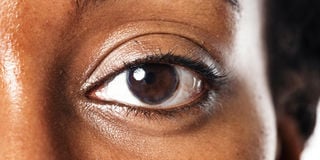What causes dry eye syndrome, and how do you cure it?

Do your eyes feel gritty and tired all the time? You may be suffering from dry eye syndrome. This common problem can cause a lot of discomfort, and it is advisable to seek treatment if you are experiencing symptoms.
Tears are essential for maintaining healthy eyes. They help to cleanse the surface of the eye and keep it moist. Without adequate tears, the eyes become dry and irritated.
Causes of dry eyes
While tears are necessary for healthy eyes, sometimes you don't produce enough of them. These various factors can contribute to dry eye:
- Age: Bodies produce fewer tears as we age. This is why dry eye is more common in older adults.
- Gender: Women are more likely to suffer from dry eye than men.
- Medications: Certain medications can decrease the production of tears. These include antihistamines, antidepressants and anti-hypertensives.
- Medical conditions: Dry eye can be a symptom of another underlying condition, such as Sjögren's syndrome or rheumatoid arthritis.
- Environmental factors: Dry, windy, or dusty conditions can contribute to dry eye.
- Wearing contact lenses: Contact lenses can irritate the eyes and cause dryness.
- Lifestyle choices: Smoking and drinking alcohol can also lead to dry eye. Spending time on the computer or reading can also make symptoms worse.
Symptoms associated with dry eyes
Dry eyes can cause a lot of discomfort. The symptoms may include:
- A burning or stinging sensation
- Itchy eyes
- Red, watery eyes
- Sensitivity to light
- Discharge of mucus around the eyes
- A gritty feeling
- Blurry vision that may improve with blinking
Treatment options for dry eyes
There are a few different treatment options available for dry eye. These include:
- Artificial tears
Artificial tears are a popular treatment for dry eyes. They are available over the counter and can be used to relieve symptoms.
Artificial tears work by lubricating the surface of the eye and providing moisture, which will reduce inflammation and irritation.
In addition, artificial tears can also help to flush out any irritants that may be present on the eye surface. Artificial tears are safe for most people to use, but reading the label carefully and following the directions is important.
Some artificial tears may contain ingredients that could cause an allergic reaction, so it is always best to be advised correctly about the choice.
If you experience any redness, swelling, or other irritation, discontinue use immediately and consult your doctor.
- Prescription eye drops
Dry eyes are common and can cause symptoms like itchiness, redness, and excessive tear production.
While over-the-counter artificial tears can effectively relieve these symptoms, some people may need prescription medication to help treat their dry eyes.
One type of prescription medication that is often used to treat dry eyes is called cyclosporine.
Cyclosporine is an antibiotic that reduces inflammation in the eye and increases tear production. It is typically taken as a drop or ointment that is applied to the eye several times a day, and should only be prescribed short-term.
- Punctual plugs
These small plugs are inserted into the tear ducts to prevent tears from draining too quickly. This can help increase the amount of moisture on the surface of the eye and reduce the symptoms of dry eyes.
- Surgery
Surgery for dry eyes is an option that an ophthalmologist or eye doctor may recommend if other treatments have not worked.
There are different types of surgery that can be performed, and the kind that is right for a person will depend on the severity of their dry eyes.
Surgery can help improve the quality of tears, increase tear production, or reduce tear drainage.
- Change in lifestyle
Making some simple changes to your lifestyle can also help to reduce the symptoms of dry eyes. These changes include:
- Avoiding smoke and dusty environments
- Resting your eyes often
- Using a humidifier in your home
- Drinking plenty of water
Dry eyes may seem like a minor nuisance, but if left untreated, they can lead to a host of long-term problems. Without adequate moisture, the eyes become susceptible to inflammation and infection.
Untreated dry eyes can also cause corneal ulcers and scarring, which can lead to vision loss. In addition, dry eyes can be extremely painful, making it difficult to perform everyday activities such as reading and working at a computer.
If you are suffering from dry eyes, it is important to see an eye doctor so that you can get the treatment you need. With proper care, you can avoid the serious complications associated with this condition.




